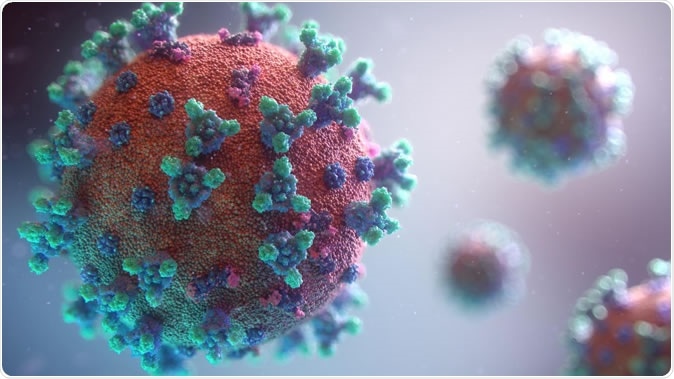While many scientists and pharmaceutical companies are racing to develop a severe acute respiratory syndrome coronavirus 2 (SARS-CoV-2) vaccine, there is also an urgent need for a coronavirus disease (COVID-19) treatment. The potent virus has now spread to 210 countries and territories, affecting more than 3.04 million people. Now, a team of German scientists is working on using antibodies to prevent and treat COVID-19.
The researchers at the German Center for Infection Research (DZIF) are fast-tracking their work to develop new therapies and drugs to improve the treatment of coronavirus patients. The aim is to find neutralizing antibodies against SARS-CoV-2, the pathogen that causes COVID-19 disease.
The same team has used the method for other viruses such as the human immunodeficiency virus (HIV) and Ebola. Now, they want to use it on the SARS-CoV-2, hoping to develop a drug for the deadly virus that has so far killed more than 211,000 people worldwide.

A DZIF research group led by Prof. Florian Klein at the Institute of Virology of Cologne University Hospital is working on identifying and using antibodies to prevent and treat SARS-CoV-2 infections. The picture shows coronaviruses. Image Credit: Fusion Medical Animation
Role of antibodies
Antibodies have three main functions in the body. Firstly, antibodies are secreted into the blood and mucosa, where they will attach to a foreign invader, including toxins and pathogens. Pathogens are disease-causing microorganisms like bacteria, viruses, and parasites, or fungi. This is a process called neutralization.
Secondly, antibodies activate the complement system to kill and destroy bacterial cells through a process called lysis or punching of holes in the cell walls. Lastly, they facilitate phagocytosis of foreign objects by phagocytic cells, in a process termed as opsonization.
B cells are lymphocytes that play a pivotal role in the humoral immune response to produce antibodies against antigens. Further, these cells work by developing memory B cells, which provide long-term immunity. These cells remember a pathogen, so the next time it invades the body again, antibodies are present to kill it immediately, warding off infection and disease.
Finding neutralizing antibodies
The team analyzed B cells from blood samples of patients who have recovered from the novel coronavirus disease. B cells, also known as B lymphocytes, which make these essential molecules called antibodies. These antibodies trap specific invading viruses and bacteria.
In the blood samples, the team identified individual B cells that can detect the novel coronavirus, the SARS-CoV-2, from millions of B cells present in the blood sample. From there, they decoded the genetic information of the antibodies. This way, they can use the information to produce more antibodies in the laboratory setting, which aims to target SARS-CoV-2 and neutralize it.
"With this method, we are able to directly identify and investigate fully human SARS-CoV-2 neutralizing antibodies. In addition, we gain information to more effectively develop active vaccines," Prof. Florian Klein, who is part of the DZIF team from Cologne, Germany, said.
Global coronavirus situation
The number of cases is increasing by the minute, with many countries grappling with overwhelmed health care systems. The United States is the hardest-hit country in the pandemic, with its number of confirmed cases nearing one million and its death toll topping 56,000 people.
Other countries with high infection numbers are mostly in Europe, with Spain and Italy having the highest number of cases in the continent. Spain has more than 229,000 infections and 23,521 deaths, while Italy has at least 199,000 cases and nearly 27,000 deaths.
France, Germany, and the United Kingdom have 165,963, 158,758, and 158,348 cases, respectively.
The World Health Organization (WHO) reiterates the importance of the health measures recommended at the beginning of the pandemic. Social distancing and hygiene practices are still potent weapons to prevent infection. Though many countries are strictly following stay-at-home orders and physical distancing measures, some are lenient, making it harder to contain the virus.
The WHO recommends the "new normal," where in the world is safer, healthier, and better prepared.
"The same public health measures we have been advocating since the beginning of the pandemic must remain the backbone of the response in all countries. Find every case, isolate every case, test every case, care for every case, and trace and quarantine every contact. And educate, engage, and empower your people. The fight cannot be effective without empowering people, and without the full participation of our people," Dr. Tedros Adhanom Ghebreyesus, the director-general of WHO, said.